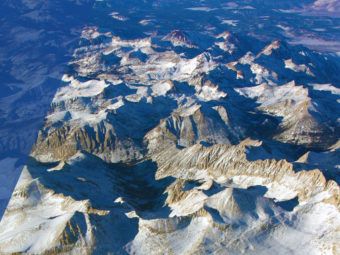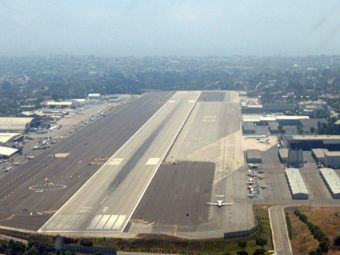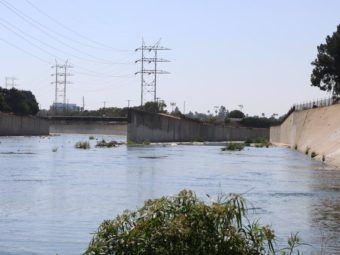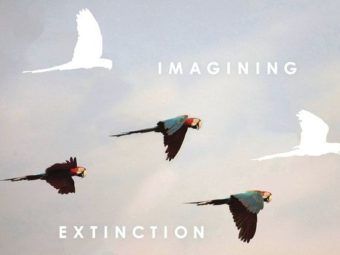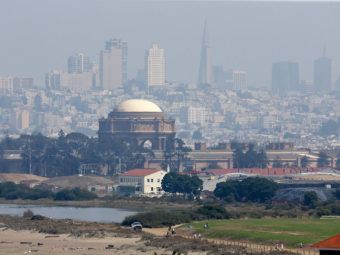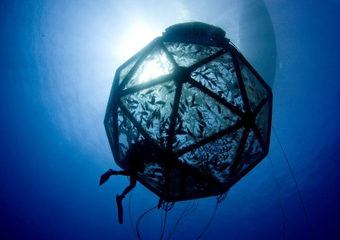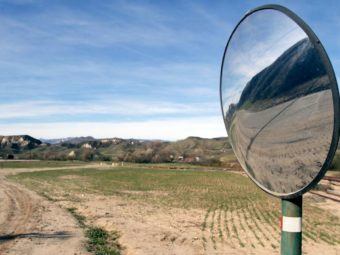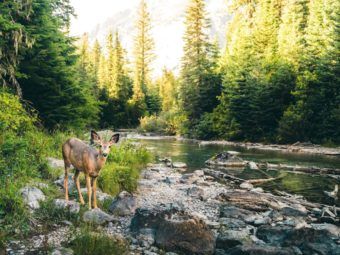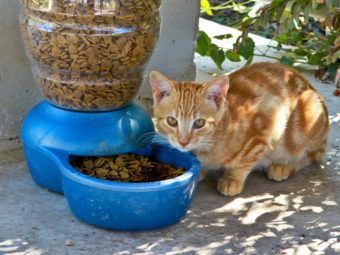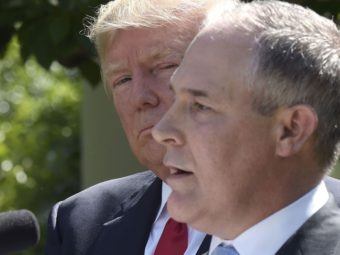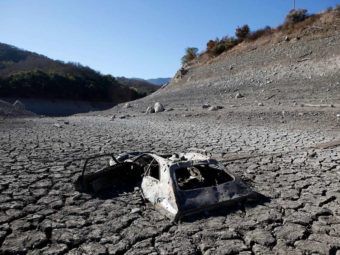IoES in the News
Headline
Author, artist shed light on meaning of surfing at salon series
The City of Malibu Arts Commission helped sponsor the event, which was moderated by Jon Christensen, senior fellow and journalist-in-residence at the UCLA Institute of the Environment and Sustainability, Laboratory for Environmental Narrative Strategies and Center for Digital Humanities.
Headline
Leonardo DiCaprio Foundation awards $20 million in environmental grants
The Congo Basin Institute at UCLA has received a grant from the Leonardo DiCaprio Foundation (LDF). This gift will expand conservation and restoration efforts at Bouamir Research Station in Cameroon,…
Headline
UCLA 2016-17 Year in Review: Climate Crusader
Alex Hall, faculty of IoES was featured in UCLA Chancellor Gene Block’s year in review publication. The review showcased Hall’s March 2017 study about the potential reduction of snowpack and…
Headline
Special Pollution Study Proposed for Santa Monica Airport
Suzanne Paulson, Santa Monica Airport Commissioner and UCLA professor, is asking for permission from the City of Santa Monica to conduct a study on the change in pollution levels before…
Headline
UCLA’s Mildred E. Mathias Botanical Garden is ready for its close-up
The botanical garden will have an open house on September 26, 2017 to showcase their expanded garden, improved pathways, redesigned stream, new $5 million La Kretz Garden Pavilion, and more. Philip…
Headline
More local water for Los Angeles could mean a drier Los Angeles River
Using 60 years of data, IoES partnered with the Colorado School of Mines to model flow changes and water quality of the river. As part of the Sustainable LA Grand…
Headline
10 teams selected to map Bay Area’s response to rising sea levels
IoEs, HR&A Advisors, Stamen Design, and Stanford Sustainable Urban Systems will be supporting Team Uplift consisting of Gensler, Arup, and Margie Ruddick Landscape– one of ten teams recieving $250,000 from…
Headline
Apply now to be a GloCal Health Fellow at CBI
Fellowship applications are now open for advanced PhD and professional students and post-docs to spend a year conducting research related to health (defined broadly) at CBI’s campus in Cameroon through…
Headline
What you need to know about LA’s urban heat problem
Who is measuring the problem and how is LA trying to cool down the city? Urban heat is disproportionate across the county and many residents do not have air conditioning.…
Headline
Unnatrual Selection: On Extinction and De-Extinction
Why is resurrecting an extinct species (especially megafauna such as dinosaurs) a recurring theme in pop culture? IoES faculty member Ursula K. Heise’s discusses the environmental culture of, “de-extinction,” in her…
Headline
California Today: Is This What Climate Change Looks Like?
Record high heat waves, multiple blazes, and microbursts all throughout California- is this what climate change looks like? Learn more about Dr. Daniel Swain's thoughts about whether this is correlated with climate change, as featured in the New York Times.
Headline
UCLA assistant adjunct professor partners with Congo Basin Institute
Learn more about Kevin Njabo, an assistant adjunct professor who helped establish the Congo Basin Institute at IoES in this Daily Bruin interview.
Headline
Aquaculture can feed the world, new report claims
The results of their study, “Mapping the global potential for marine aquaculture,” published in the journal Nature Ecology and Evolution on 14 August, demonstrates the oceans’ vast potential to support aquaculture, director of the UCLA Institute of the Environment and Sustainability and report co-author Peter Kareiva said. “We need to find more protein for our growing population, and we have pretty much tapped out wild fish as protein sources,” he said. “This study shows that farming fish in the ocean could play a huge role in feeding people without degrading our ocean or overfishing wild species.”
Headline
Opponents make 11th-hour bid to stop Newhall Ranch development
Stephanie Pincetl, a professor at the UCLA Institute of the Environment and Sustainability, said the ultimate decision on whether the project moves forward will depend on how broadly a judge interprets the developer’s obligations under the California Environmental Quality Act. “Newhall … complied with the letter of the law," she said. “It’ll depend on the judge and if the judge is willing to look at the larger set of impacts and not rule in a very narrow way.”
Blog
The Science Police
In their introduction to the upcoming book, the ecologists Peter Kareiva and Michelle Marvier write: “Working as editors for some of the major journals in our field, we have seen first-hand reviewers worrying as much about the political fallout and potential misinterpretation by the public as they do about the validity and rigor of the science.”
Headline
Why the Eclipse Could Be a Bummer for Much of L.A.
Sky-watching weather in parts of Los Angeles is expected to be less than ideal. A cutoff low weather system is working to eclipse the historic eclipse today by bringing low clouds to the coast.
Headline
Ever wondered how much your pet’s diet impacts the environment?
Meat production has well-documented impacts on the environment, as Okin notes in a study he published this month in the journal PloS ONE: “Compared to a plant-based diet, a meat-based diet requires more energy, land, and water and has greater environmental consequences in terms of erosion, pesticides, and waste.”
Headline
America’s Fancy Pet Food Addiction Is a Big Problem for the Environment
American pets have been increasingly served up prime cuts of meat, but this food comes at a cost.
Headline
Fido, fluffy and climate change: The news is not good
Meat-eating cats and dogs create the equivalent of about 64 million tons of carbon dioxide a year, about the same climate impact as a year’s worth of driving from 13.6…
Headline
Straying Too Far? Professor Says Dogs and Cats Harm Climate, Advises Hamsters Instead
In his paper published last week, UCLA professor Gregory S. Okin found that meat-eating dogs and cats create the equivalent of 64 million tons of carbon dioxide per year based on the energy consumption required to produce their food, or the same impact as driving 13.6 million cars.
Headline
Did we humans contribute to the Texas heat wave? It’s complicated
"One of the clearest signals that is summarized in this report is that California is already a warmer place than it used to be", said Daniel Swain, a climate scientist at UCLA whose work is cited in the report.
Headline
Your Carnivorous Pet May Have a Large Carbon ‘Pawprint’
UCLA researchers say that meat-eating pets meat might have unexpectedly large effects on climate change. Pets generate 64 million tons of carbon dioxide a year, UCLA geography professor Gregory Okin…
Headline
Climate gloom and doom? Bring it on. But we need stories about taking action, too
Facts are not enough. Bring people into the story of science to stimulate their curiosity and inspire them to action.
Headline
Climate gloom and doom? Bring it on.
UCLA’s Jon Christensen urges people to tell stories that inspire action against climate change.
Headline
Federal report sees human-caused changes to California’s climate
Since the 1980’s, human activity has caused higher temperatures and extreme swings between floods and droughts in California’s climate.



